"How fast does it charge?" is a common consideration for buyers when considering an electric car model.
For drivers that regularly do long distances having the option to charge fast, will give you the ability to replenish the available range in as little time as possible.
The fastest charging electric car is the Porsche Taycan. To find out which vehicles make our top 5 range list, keep reading.
If you want to find out the charging capabilities for all electric car models, browse EV our database.
The Importance of Fast Charging
The rise of electric vehicles has brought with it a myriad of benefits, from reduced carbon emissions to cost savings. However, one challenge that has consistently been a concern for potential EV buyers is charging time. Here's why fast charging is revolutionising the EV industry:
Reducing "Charge Anxiety - For many, the fear of running out of battery in the middle of nowhere, coupled with long charging times, has been a deterrent. Fast charging alleviates this "charge anxiety," ensuring that you can get back on the road in a matter of minutes, not hours.
Making Long-Distance Travel More Feasible - Remember the times when driving an EV meant meticulously planning your route around charging stations? With the advent of fast charging, long-distance travel in an EV is becoming as convenient as with petrol vehicles.
Environmental and Economic Benefits - Faster charging times mean more EVs on the road and fewer petrol vehicles. This not only reduces our carbon footprint but also translates to significant savings, given the rising fuel prices.
Factors That Influence Charging Speed
While the vehicle itself plays a crucial role, several external factors influence how quickly an EV charges. Let's explore them:
Battery Technology and Capacity - At the heart of every EV lies its battery. The technology behind these batteries (chemistry, BMS) and their capacity plays a pivotal role in determining charging speeds, particularly when it comes to DC fast charging.
Charging Infrastructure and Network - A robust and widespread charging network ensures that fast chargers are accessible, reducing wait times and making EVs a viable option for many more people.
Vehicle's Onboard Charging Capabilities - Not all EVs are created equal. Some come equipped with onboard chargers capable of handling higher power levels, translating to faster charging times. By way of example, popular EV models such as the BYD Atto 3 charge as 7 kW AC, whereas the Porsche Taycan can charge at up to 22 kW AC.
1. Porsche Taycan
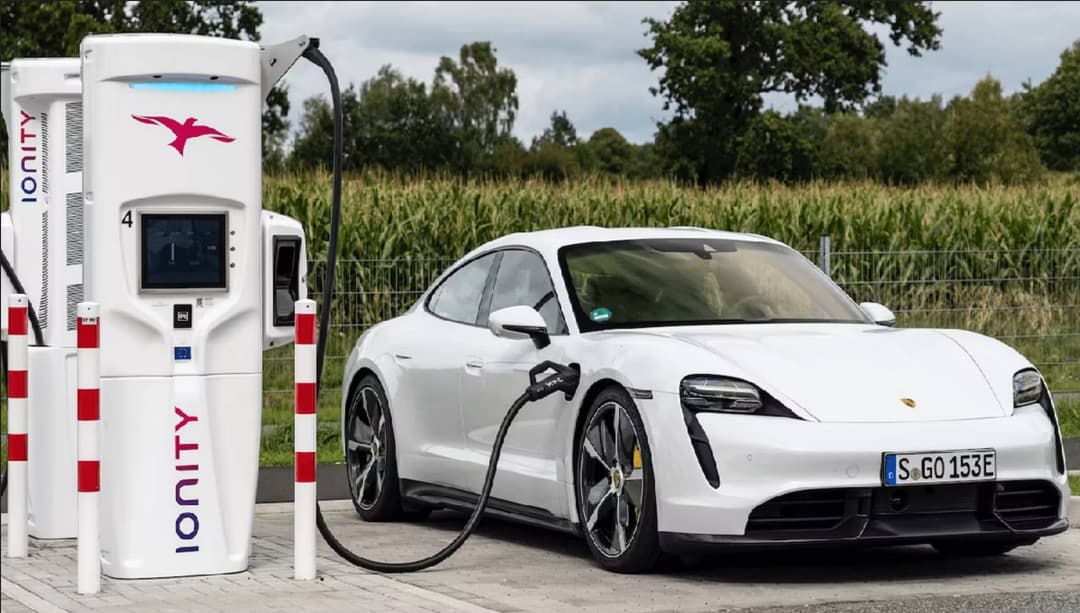
The Porsche Taycan is a four- or five-seater electric large coupe made in Germany.
Featuring an 800v charging architecture, we rate it as the fastest overall charging electric car available for sale. While its DC fast charge speed is slightly below that of the Audi e-Tron GT, the potential to charge at home at up to 22 kW (via an optional upgrade), gives it the practical edge.
The electric car can be charged at up to 22kW AC/270kW DC (depending on the variant) using a Type 2/CCS2 port.
Charging times for the Porsche Taycan are:
⏲ 9 hours for a full charge (0-100%) using a level 2 home charger.
⏲ 19 minutes for 10 to 80% using a 350kW rapid charger.
Priced from $158,100 before on-road costs, it has up to 434km of claimed driving range, two battery pack sizes, and is available in front-wheel and all-wheel drive.
It is offered in four variants featuring a 10.9-inch infotainment display, active safety assistance systems, curved digital instrument cluster, and more as standard.
The Taycan is covered by a three-year, unlimited kilometre vehicle warranty.
2. Audi e-tron GT
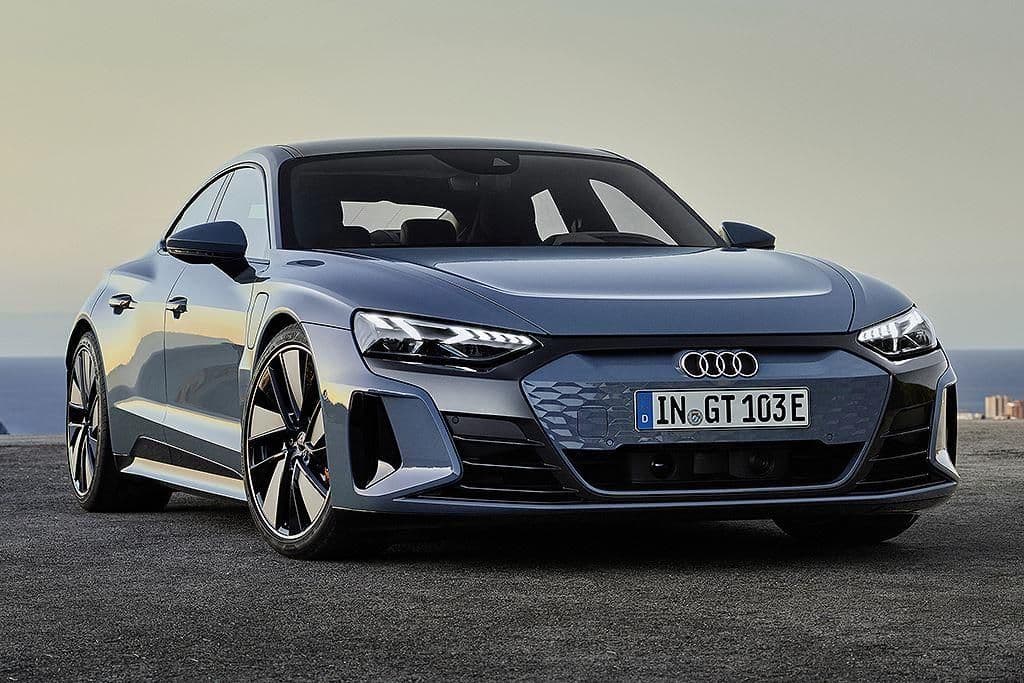
The Audi e-Tron GT is a five-seater electric large coupe made in Germany.
Featuring an 800v charging architecture, it is rated as the fastest-charging electric car available for sale.
The electric car can be charged at up to 11kW AC/270kW DC using a Type 2/CCS2 port.
Charging times for the e-Tron GT are:
⏲ 9 hours and 15 minutes for a full charge (0-100%) using a level 2 home charger.
⏲ 21 minutes for 10 to 80% using a 350kW rapid charger.
Priced from $181,700 before on-road costs, it has up to 488km of claimed driving range, one battery pack size, and is all-wheel drive.
It is offered in two variants featuring a 10.1-inch infotainment display, active safety assistance systems, adaptive air suspension, and more as standard.
The e-Tron GT is covered by a five-year, unlimited kilometre vehicle warranty and an eight-year/160,000km battery warranty.
3. Tesla Model Y
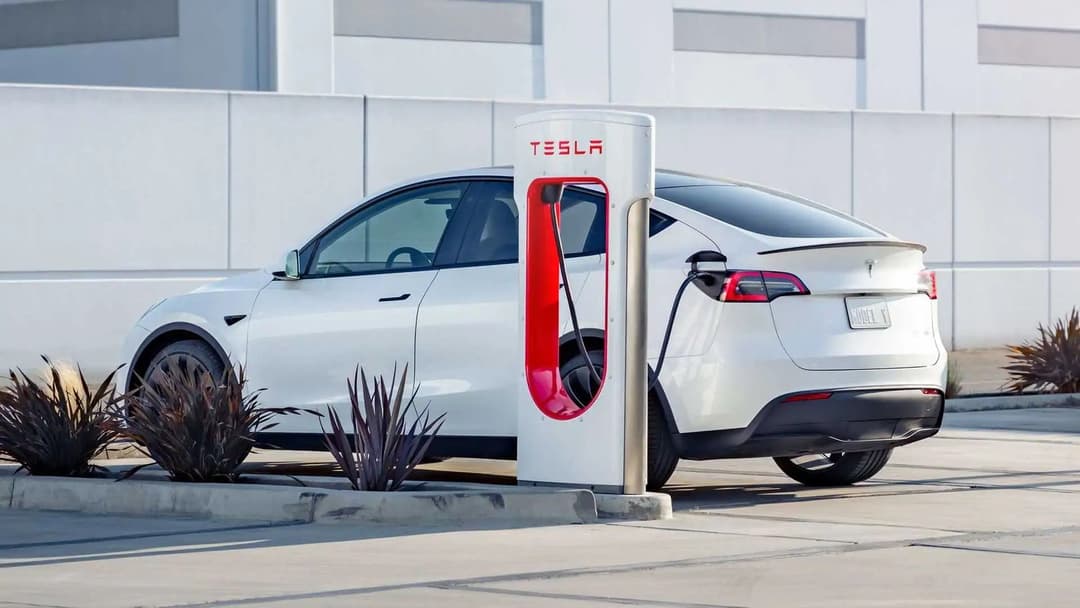
The Tesla Model Y is a five-seater electric small sedan made in China.
The Performance variants can be charged at up to 11kW AC/250kW DC using a Type 2/CCS2 port.
Charging times for the Tesla Model Y Performance are:
⏲ 7 hours and 45 minutes for a full charge (0-100%) using a level 2 home charger.
⏲ 19 minutes for 10 to 80% using a 350kW rapid DC charger.
Priced from $72,300 before on-road costs, it has up to 514km of claimed driving range, two battery pack sizes, and is available in rear-wheel and all-wheel drive.
It is offered in two variants featuring a 15-inch infotainment display, active safety assistance systems, built-in dashcam recording, and more as standard.
The Model Y is covered by a four-year/80,000km vehicle warranty and a eight-year/160,000km or eight-year/192,000km battery warranty (depending on the variant).
4. Tesla Model 3
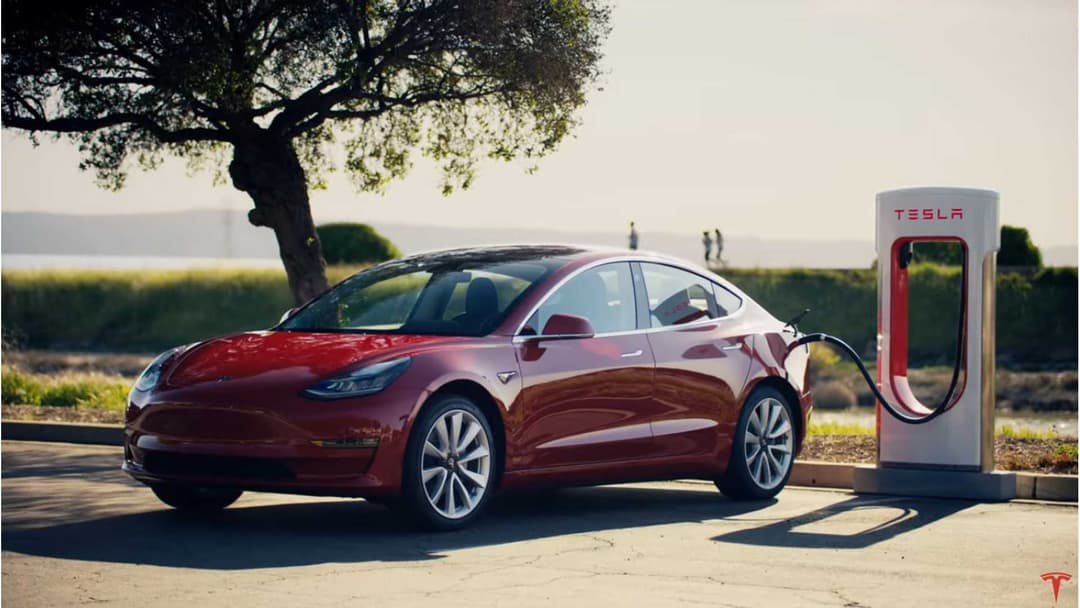
The Tesla Model 3 is a five-seater electric small sedan made in China.
The Long Range and Performance variants can be charged at up to 11kW AC/250kW DC using a Type 2/CCS2 port.
Charging times for the Tesla Model 3 Performance are:
⏲ 8 hours and 15 minutes for a full charge (0-100%) using a level 2 home charger.
⏲ 23 minutes for 10 to 80% using a 350kW rapid DC charger.
Priced from $65,500 before on-road costs, it is offered in two battery pack sizes and rear-wheel and all-wheel drive.
It is offered in three variants featuring a 15-inch infotainment display, active safety assistance systems, built-in dashcam recording, and more as standard.
The Model 3 is covered by a four-year/80,000km vehicle warranty and a eight-year/160,000km or eight-year/192,000km battery warranty (depending on the variant).
5. Kia EV6
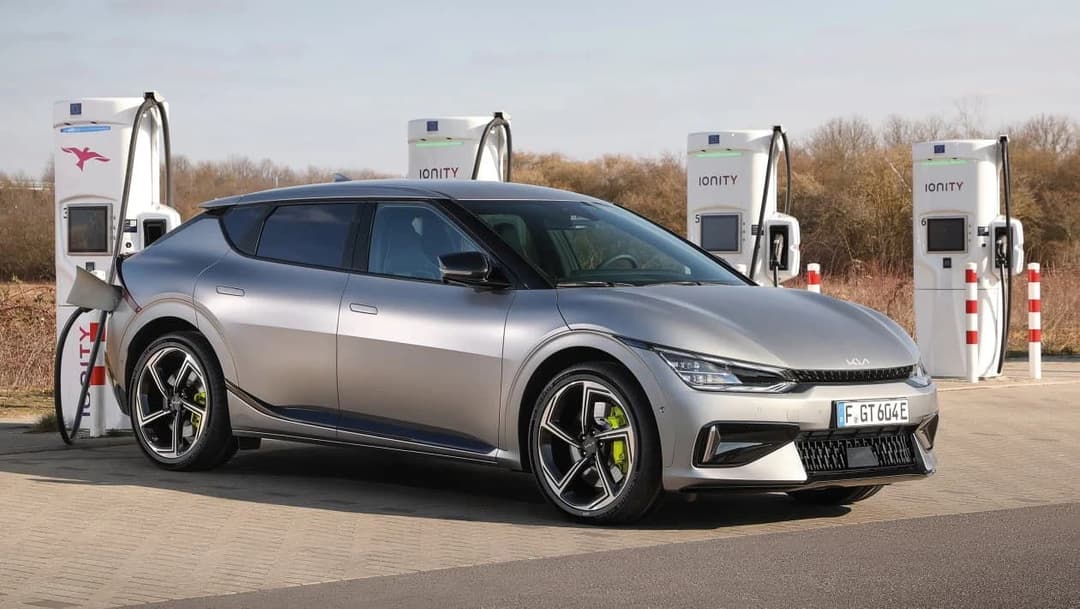
The Kia EV6 is a five-seater electric medium crossover made in South Korea.
It features an 800v charging architecture which it shares with the Hyundai Ioniq 5.
The electric car can be charged at up to 10.5kW AC/240kW DC using a Type 2/CCS2 port.
Charging times for the Kia EV6 are:
⏲ 8 hours and 30 minutes for a full charge (0-100%) using a level 2 home charger.
⏲ 18 minutes for 10 to 80% using a 350kW rapid DC charger.
Priced from $72,590 before on-road costs, it has up to 528km of claimed driving range, one battery pack size, and is available in rear-wheel and all-wheel drive.
It is offered in three variants featuring a 12.3-inch infotainment display, active safety assistance systems, flush exterior door handles, and more as standard.
The EV6 is covered by a seven-year, unlimited kilometre vehicle warranty and a seven-year/150,000km battery warranty.
Check out our Kia EV6 GT-Line AWD reviewEvery Electric Car Ranked by Charging Speed
Below is a list of the AC and DC charging speeds of currently available electric car models.
The Future of Fast Charging
The world of EV charging is not static. With technological advancements, we're on the brink of even faster charging solutions. Here's a glimpse into the future:
Predictions for Charging Speeds - By 2030, experts predict that charging an EV could be as quick as filling up a tank of gas. With ultra-fast chargers in the pipeline, we might see charging speeds exceeding 1000 kW. Recently, a Li Mega EV achieved a peak charging rate of 552 kW using CATL batteries.
Upcoming Innovations in Battery Technology - Solid-state batteries, touted as the next big thing in EVs, promise not only faster charging but also longer ranges and greater longevity.
Expansion of Charging Networks - Major players like Tesla, ChargeFox, and Evie Networks are rapidly expanding their networks. This means more fast chargers in more locations, making EVs even more convenient.
Tips for Maximising Charging Efficiency
To get the most out of your EV's battery, consider these tips:
Proper Battery Maintenance and Care
- Avoid Deep Discharges: Regularly charging your EV and avoiding letting the battery drain completely can extend its life.
- Mind the Temperature: Extreme temperatures, both hot and cold, can affect battery performance. Whenever possible, park in shaded or sheltered areas.
Utilising Peak Charging Times - Charging during off-peak hours can be faster and, in some cases, cheaper. Check with your local utility provider for off-peak times.
Investing in Home Charging Solutions - Having a fast charger at home can make a world of difference, ensuring your EV is always ready to go.
Stay up to date with the latest EV news
- Get the latest news and update
- New EV model releases
- Get money savings-deal

Privacy policy